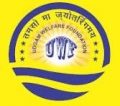Free IELTS General Reading Practice Test With Answers – General Training Prep
The Free IELTS General Reading Practice Test With Answers – General Training Prep is ideal for learners aiming to strengthen reading comprehension for real-life situations. These tests simulate authentic workplace and social scenarios that commonly appear in the IELTS General Reading section.
Enhance Your Reading Accuracy and Confidence
By using IELTS Reading Practice Test Online Free resources, candidates can enhance vocabulary, scanning techniques, and time management skills. Regular practice helps test-takers identify key ideas and supporting details efficiently, leading to improved performance.
Prepare Strategically for IELTS Success
This collection of General Training passages helps develop critical skills needed for professional and social communication. Additionally, these mock tests complement your IELTS Reading Test 1 Academic preparation, ensuring readiness for all reading tasks with structured guidance and feedback.
🌍 IELTS Academic Reading Passage 1: Climate Change and Its Impact on Global Ecosystems
Climate change, driven primarily by **elevated levels of greenhouse gases** in the atmosphere, is exerting profound pressure on natural environments worldwide. Since the start of the Industrial Revolution in the 18th century, the burning of fossil fuels has significantly increased the concentration of carbon dioxide ($\text{CO}_2$). This gas acts like a blanket, trapping heat and causing the Earth’s average surface temperature to rise—a process known as the **greenhouse effect**.
One of the most visible impacts is the rapid melting of **polar ice caps and glaciers**. Data indicates that the Arctic sea ice extent has been declining by approximately 13% per decade since the late 1970s. This melting process contributes directly to **sea-level rise**, threatening low-lying coastal areas and island nations with increased flooding and erosion. Furthermore, the ocean absorbs a large percentage of atmospheric $\text{CO}_2$, which triggers a separate process called **ocean acidification**.
Marine ecosystems are particularly vulnerable to these changes. Increased water temperatures cause coral polyps to expel the symbiotic algae living in their tissues, leading to **coral bleaching**. Mass bleaching events have become more frequent since the 1990s, severely degrading reef structures that serve as vital habitats and nurseries for a **quarter** of all marine life. On land, terrestrial ecosystems are also struggling to adapt.
Many species are being forced to shift their geographic ranges toward the poles or to higher altitudes in search of cooler conditions. This phenomenon, known as **habitat range shift**, disrupts established food webs and predator-prey relationships. Changes in temperature and precipitation patterns also influence the timing of biological events, such as flowering and migration—a disruption referred to as **phenological change**. Unless global $\text{CO}_2$ emissions are drastically reduced in the coming years, scientists predict that the integrity of most global ecosystems will be fundamentally compromised.
✅ Quiz Results
Scroll up to review your answers and the correct solutions.

